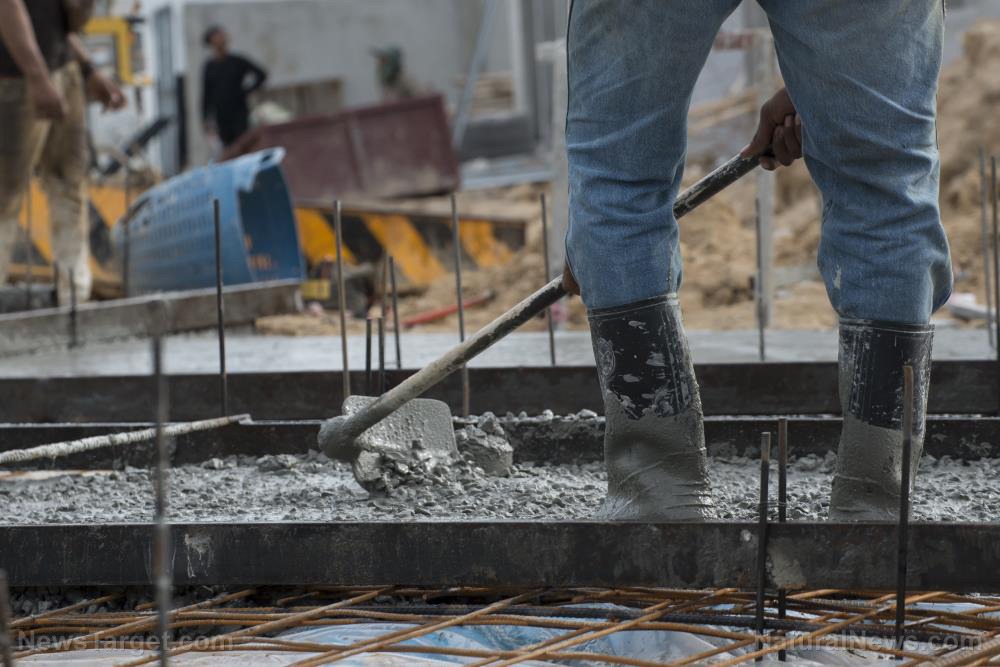
Construction workers in the Melbourne Central Business District blocked traffic to peacefully protest the state government's latest restrictions for the industry.
Dozens of construction workers blocked the streets of Lonsdale and Elizabeth with chairs and tables during their breaks, stopping the trains, as shown in videos via social media.
The roads have since been cleared, with the construction workers packing up tables and chairs after their sit-in.
Independent journalist Rukshan Fernando reported that people from the worksites do have a mix of views and concerns, such as mandatory vaccination. However, unions do not necessarily publicly support them on the matter.
The silent protest came in a day after Victorian Premier Daniel Andrews announced that construction workers have to show evidence of vaccination to their employers -- that they had at least the first dose of coronavirus vaccine by 11:59 PM on September 23. This means that construction workers have a week to go before getting the first dose.
Officials say that 13 percent of active cases in the state are linked to construction sites, which was why the government decided to call for a vaccination mandate.
Additionally, construction workers will not be able to cross the metropolitan-regional boundary for work. Tea rooms will also be shut, and any food or drink will now be consumed indoors at work.
According to Andrews, the government's decision followed the health advice, which aimed to keep the construction industry working at only 25 percent workforce cap. "If they want to work and be part of that 25 percent, they need to be vaccinated with one dose by midnight next Thursday night. If they’re not, they won’t be able to come on-site," he said.
John Setka, the secretary of Victoria's construction union, CFMEU, said that the decision to close tea rooms is appalling and that the union will not support the use of mandatory vaccines.
However, when asked if the union would represent workers who are laid off because of their refusal to vaccinate, he said that they will take each case. He shared that they are trying to rotate people coming in and out of construction sites, but the industry is suffering pretty badly at the moment.
Jeroen Weimar, the COVID-19 commander in Victoria, defended the government's decision to place restrictions on the use of tea break rooms due to the significant risk of transmission in them. (Related: REVOLT: Australian truck drivers protest border restrictions, mandatory vaccinations as local "authorities" treat citizens like medical prisoners.)
Victoria recorded highest seven-day average of COVID-19 cases
Victoria recorded 510 new COVID-19 cases on Friday, with a death of a woman in her 50s. The current seven-day average is at 458, up from 286 the previous week, with cases doubling every ten days.
Andrews has been closely involved in the drafting of the national plan to fighting the pandemic, and he said the state roadmap for spring would center around the 70 to 80 percent adult vaccination targets modeled in the Doherty Institute report.
There are about 208 COVID-19 patients in Victorian hospital wards, while 49 are admitted to the ICU.
Epidemiologists are concerned that the state will reopen before cases reach their peak. However, Melbourne University professor Tony Blakely that relaxation should only happen when daily case rates were "trending down." He said that Melbourne has to turn the rates around so that they will have headroom to send children back to school without worrying too much about infections.
Responding to the protests, Weimar said "it doesn't seem unreasonable" to ask construction workers to eat outside if they prefer to eat together, rather than in a small space where transmission risk is higher.
"I appeal to the industry and to the employees, so many sectors would love to be at work. So many of us would love to be working almost normally. If you can’t sit next to your mates having a sandwich, that doesn’t seem a huge burden to bear," he said.
Read more news and updates about the COVID-19 at Pandemic.news.
Sources include:
Please contact us for more information.















